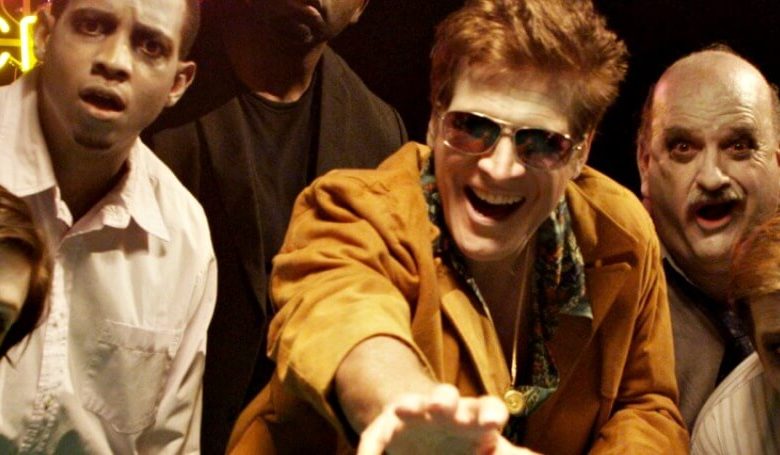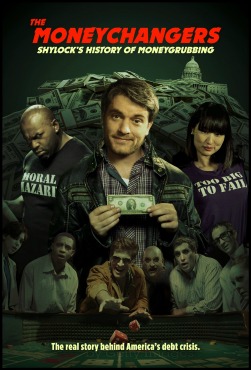‘Moneychangers’ Questions ‘Greedy Banker’ Memes

Bankers are the go-to villain in too many Hollywood stories to count. Consider “Hell or High Water” as a recent example.
Film producer Chris Mortensen sees another side to the maligned occupation.
Mortensen’s “The Moneychangers” offers a more nuanced look at money lenders through the years. He’s particularly interested in the roles they did, and didn’t, play in the 2008 financial crisis.
“The Moneychangers,” available now on iTunes and Amazon Prime, refuses to settle for those banker caricatures. Yet the image of the greedy banker has been around for centuries.
“Ever since ancient times people who deal with money have been vilified. It’s in the Bible .. you can’t make money form money,” Mortensen says, adding bankers even get slammed in “Dante’s Inferno.”
“I can’t remember the rings the bankers are on, but it’s bad,” he says with a laugh.
Thus the film’s pithy tagline, “The Movie God and Washington Don’t Want You to See.”
The movie uses a good deal of humor to share information about banking practices over time and how the culture views money lenders then … and now.
Agree? Disagree? The movie will make you think either way.
“The Moneychangers or Shylock’s History of Moneylending” features leading financial figures, former heads of the FED and FDIC, economists and economic historians to paint a more complicated, and unexpected, picture of our past and present economy.

Mortensen stumbled onto the “Moneychangers” idea after reading an article by Yaron Brook about the morality of money lending.
The subject intrigued him, and it certainly tied into the 2008 financial crisis. Only other films beat Mortensen to it, including the Oscar winning comedy “The Big Short.” Yet his take on the subject hadn’t been adequately captured on film.
Until now.
“I can’t stand the bull*** part of it. A lot of those movie were just crap,” he says. “They all tell you what happened, their version of it, but not why it happened, the complicity of Washington and the regulators, how completely out to lunch the analysts were.”
Mortensen, an award-winning writer, producer and director, looked past previous films to deliver a documentary unlike any other.
“Banking is the most regulated industry in the world, more than medicine,” he notes. Shouldn’t that be discussed with more depth?
And films like “The Big Short” were far too lenient on some genuine troublemakers like Fannie Mae and Freddie Mac. Those government-sponsored entities played a role in the financial crisis.
“The biggest culprits were [Sen. Chris] Dodd and [Rep. Barney] Frank. They kept saying, ‘leave Fanny and Freddie alone,'” he says.
“The Moneychangers” didn’t get a traditional theatrical rollout.
“This is not a movie to go to the multiplex on Friday night [to see],” Mortensen says. Streaming home services offered a solution for his team.
Mortensen’s next project may raise even more eyebrows. He just finished production on a documentary centered on the late Supreme Court Justice Antonin Scalia.
“He’s not a right-wing conservative. He actually was a really good justice … perhaps the best justice in the last century. Liberals don’t undertand that,” he says.
